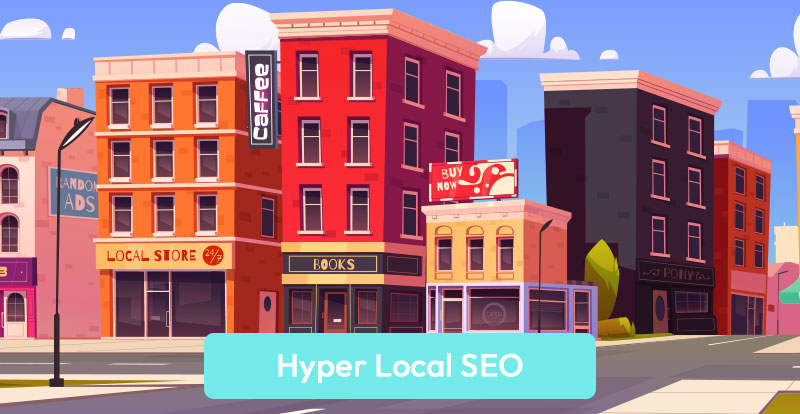Businesses large and small, local or international, use local SEO to boost their business. We’ve spent years helping businesses across various industries like restaurants, healthcare, and professional services create websites and establish online presences geared toward our own local market of Philadelphia. We couldn’t be more proud of our work for Philly businesses, and we’ve seen firsthand how a well-crafted local SEO strategy can transform a business's reach and growth.
Philadelphia offers a wealth of opportunities for businesses willing to invest in local SEO. We’ve always maintained that if you want to reach Philly customers, you need to create content that speaks to this market. Whether it’s referencing iconic landmarks like the Liberty Bell or participating in local events, integrating local elements can make a significant impact.
You need every tool available if you’re going to reach every potential customer in a given area, but don’t worry, you’ve come to the right place. We know what it takes to rank high in Philadelphia’s competitive market because we’ve done it ourselves, moving from nothing to ranking first for most web design keywords. Local SEO isn’t just about adding a few trending keywords. When the average local Google Business Profile is getting over 1,200 views a month, you know it’s time to take advantage. We’ll share insights into the latest trends and best practices to help you stay ahead in this competitive landscape.
Understanding Local SEO and its Importance
Local SEO isn’t a new concept, and thankfully, it’s not a complex one either. SEO refers to search engine optimization. Utilizing SEO helps your business or product to appear high on Google searches related to that market. So local SEO is a step further, where you specifically want to appear in local-based searches. This is extremely vital for brick-and-mortar businesses with a storefront in need of foot traffic.
If you service a specific area, you want that area to be aware of your company, and local SEO is the way to do it. The stats don’t lie either, considering that 28% of local search results will turn into a sale within 24 hours. That’s money on the table and you could be leaving it there.
General SEO can be just as beneficial as local SEO, but not every business needs both. The bar down the street in Downtown Philly is not going to want to expand their SEO to large searches, they want to appear under location-based queries, so your geographical location needs to be readily available to searchers.
That doesn’t mean that bar or dentist wants their online presence to grow exponentially. It just means that an increased online presence means an eventual increase in other metrics, including foot traffic, leads, and sales.
Want to stay competitive in the Philadelphia business market? It’ll take some work, but the benefits are worth it.
Conducting Keyword Research for Philadephia-Based Searches
Keywords are an essential pillar of SEO. Like the leads they may eventually produce, they don’t fall out of the sky. They’re based on changing trends that are constantly shifting. That doesn’t mean you need to go surfing through different social media sites and search engines to find what’s popular, but you should be using the tools that can do that for you.
Google Keyword Planner
Google is one of the most user-friendly companies in the world and their Keyword Planner reflects that. After setting up and optimizing your Google Business Profile you can also use some of their other tools to identify the keywords you need to be using. Here are the steps to finding them.
- Create a Google Ads account
- Set-up is free
- After account set-up, click the “Tools” icon
- Find the “Planning” menu and hit the drop-down menu
- Click on the “Keyword Planner”
- Find “Discover” and click it for new keywords
- To find results relevant to your business, select “Start” with keywords
- Then enter various keywords or phrases that are related to your industry, business, or area
- Hit “Get Results”
Ubersuggest
Don’t worry, this isn’t an instructional guide on how to order your next ride to the airport. While it doesn’t boast as many tools or features as Semrush, Ubersuggest is a very useful SEO tool that just so happens to be free. It can help with content planning, and of course, keyword research.
Here’s how you’ll use it.
- Create your free account
- Open the dashboard on the Ubersuggest website
- Enter the same relevant phrases or keywords you used above
- Select the specific region or area you want to target
- Manually select from other filters that include industries and actual competitors
- Click “Next” to receive your over report with detailed keyword stats
Successful Keyword Examples
While the science behind SEO is sophisticated the results are often anything but. If you’re a cheesesteak truck in the middle of Philadelphia, you shouldn’t be surprised to learn the most relevant keyword phrase is likely “best cheesesteaks in philly”. If you’re running a local bakery that specifically sells cupcakes, you’ll undoubtedly see “cupcake shops in Philadelphia” as one of your results.
That doesn’t mean that SEO is predictable, a certain amount of it is, but don’t let your instincts dictate how you analyze trends. Let the data tell you what to think.
Optimizing Your Website for Philadelphia-Based Searches
You can do a lot of work with on-page SEO. Every title, header, or meta description is an opportunity to include those valuable keywords and phrases you just discovered. A meta description is an especially significant opportunity. It’s often the first phrase people read about your business and it’s also one of the most important pieces of text that Google’s crawlers are going to read.
The same should go for your overall content. Don’t go adding a bunch of unnecessary pages or blog posts, but instead make sure that each one you do add needs to feature the right keywords
Schema Markup
Search engines need help understanding text, even the basic text that appears on your website. Schema markup is a kind of code that helps the engines identify the characteristics and nuances of your text so it’s more relevant for search queries. The more context a search engine has for the different types of text on your site the more likely it is to appear.
You might serve both pizza and beer, so when someone searches for the different types of pizza you serve schema markup will allow it to appear as one simple answer instead of just regurgitating the same website description. Make sure users get the answers they need and not the ones your unoptimized website wants to give them.
Location-Specific Pages
In another article, I laid out the benefits of having a Google page for each of your business locations. Google’s going to do it for you already, so take control of that profile and ensure it has all of the information your potential customers need.
Especially when you’re talking about a business that’s local to Philadelphia, you want every specific laid out and spelled out for visitors to see. Future customers should know the experience they're getting before they walk into your Old City or Fishtown locations, so create individual pages that answer every question.
Enhancing Your Google Business Profile
First of all, this isn’t like Facebook or your dating profile, you need to fully complete your Google Business Profile. Users not only want your NAP (number, address, and phone number) but they also want to know your dietary restrictions, your accessibility features, the USPs of your service, and any other details they could use to make a decision.
Whether you’re tonight’s dinner or the landscaper who’s going to reinvent their property, they’ll have questions and concerns. A fully fleshed-out Google Business Profile is going to answer as many of those questions and concerns as possible.
Here are a few more steps you can take to get that profile to where it needs to be.
- Add relevant keywords
- Detail your service, brand, and staff
- Post on Google
- Choose the correct and appropriate categories
- Verify your account
- This is especially important as it demonstrates authenticity and confirms you actually represent your business
- Respond to reviews!
Let’s talk about that last one for a minute. Returning customers and potential customers want to know business owners are engaged. Not only that, they don’t want to assume your Google Business Profile is run by some intern or AI program. Interact with customers who review your business. If they gave it a bad review, try to address their issues or explain the context of that situation. If they posted a great review? Then make sure to thank them and tell them how much you look forward to their return.
Customers want to know you’re listening, so actually listen.
Building Local Citations and Backlinks
You may not have noticed when your business got that shout-out in the Philly Voice, but many potential customers will. When a local business or publication talks about your business, they typically link to it, and that’s a citation. You want more than a link or a mention though, you want that post to include as much information about your business as possible.
This is hugely beneficial for SEO, especially when someone searches “best suits in Philly” and finds an entirely different business talking about how good yours is. Citations can be tricky and complicated, but they are manageable, which is why there are managing services for them.
I recently wrote about how Brightlocal’s citation managing services can help many businesses. They’ll track the different local citations your business has and make sure your NAP, or other relevant data, is right there for the reader to see. It might cost a few dollars, depending on the service and subscription plan, but it increases outreach and educates more potential customers.
Earning Backlinks and Local Citations
Wondering how you could build or earn those local citations? I’ve got you covered.
- Create alerts that tell you when your brand gets a mention without a link, then add one
- Write about other local websites and businesses to build your reputation
- Offer to write some guest blogs based on your expertise
- Find some local businesses and offer collaboration opportunities
- Reach out to local news or community sites with special offers or occasions
Monitoring and Measuring Your Local SEO Efforts
Now that you’ve implemented those strategies, it’s time to track their success. I’ve already linked to my post about tracking business success, but this is more about the tools you’ll use to do that. First of all, it should come as no surprise that Google is your best friend. Both Google Search Console and Google Analytics can provide valuable data, allowing you to track the changes in metrics based on the changes you made to your website.
There are other alternatives like Smartlook at Hotjar, but neither are quite as comprehensive as using the free options from Google.
Key Metrics for Your Website
There are hundreds of different metrics you’ll be faced with, so it’s important to know which ones genuinely measure your success. Here’s a simple breakdown.
Conversion RatesMost important of them all, measuring how many of your visitors turn into actual customers. The better the rate the more customers you’ll have.
Exit RateThis tells you how quickly a user leaves a page, which can give you plenty of data on that page’s performance and the changes you need to make. The higher the exit rate the better.
Traffic Sources and Returning VisitorsSee where your new traffic came from or recognize that you have a returning visitor or customer. Then you can strategize to appeal to even more visitors from those sources.
Some other metrics, like session duration, are less relevant when your website is just redirecting them to your storefront. If your website does lead to sales, the above are all worth paying attention to. Users want the information, products, or services they searched for when they hit that Google query. When a user clicks on your website based on that meta description or schema, make sure they know they’re in the right place.



